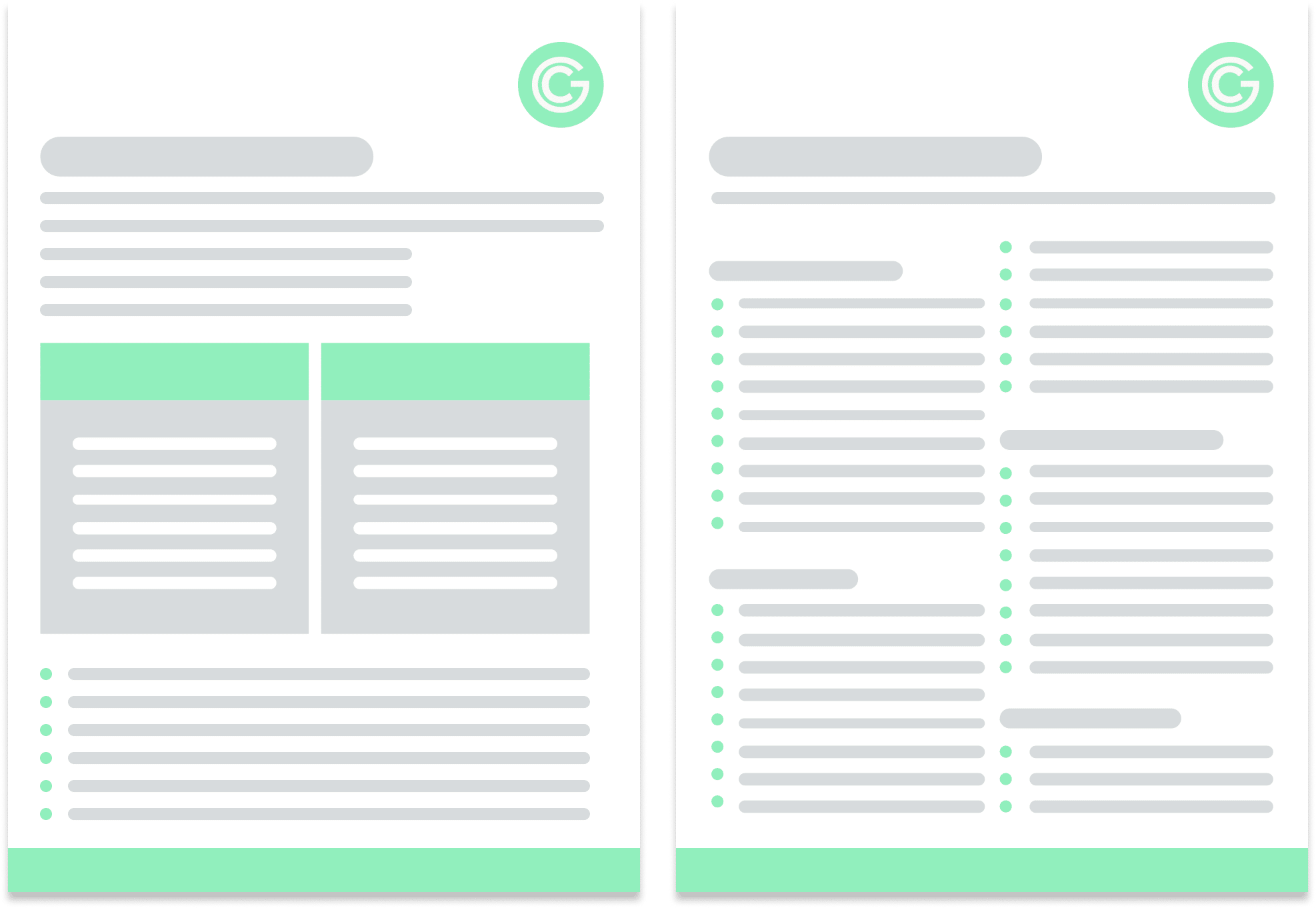

Diversity, equity and inclusion
Creating the right workplace culture is increasingly regarded as critical to business success and sustainability. A key component in getting this right is a genuine commitment to the promotion of diversity, equity and inclusion (DEI).
This means creating an environment in which all individuals experience equality of opportunity irrespective of their identity or characteristics. Successfully embedding DEI in a company’s strategy delivers a sustainable and competitive advantage. It leads to higher retention levels, greater workforce engagement, the ability to attract top talent, better innovation and stronger decision-making.
GoodCorporation offers a range of DEI consultancy services to help organisations design, embed or evaluate their approach to DEI including bespoke services for the careful and meaningful management of certain protected characteristics.
Our DEI services
Building and implementing an effective DEI programme requires ongoing effort. GoodCorporation provides the following services to help organisations implement best practice in this complex area.
Strategy and programme design: establishing a practical roadmap which takes account of an organisation’s main priorities and challenges
Gap analysis: review of existing DEI practices, policies and procedures to identify strengths and areas for improvement
Benchmarking of policies and best practice: reviewing existing policies against industry peers and/or top-performers from other sectors to highlight areas for improvement
Training: designing bespoke training materials and delivering as needed
Policy development: building sensible policies and processes to implement
Feedback collection tools: developing tools to collect staff and stakeholder feedback to inform the ongoing improvement of an organisation’s DEI programme
The key benefits of DEI
Cultivating an inclusive business culture can be challenging, particularly for global organisations attempting to implement a corporate DEI policy across multiple geographies. Commitment to DEI can also vary significantly, with some sceptical about any returns on investment and others considering DEI as a ‘nice to have’ rather than the core element of a healthy company culture. Those organisations that embrace DEI however, are seeing the benefits of an inclusive work culture including:
Greater employee wellbeing

Improved staff retention

Promotes trust between stakeholders
Better access to top talent
Improved company culture that fosters a sense of belonging
Reduction in workplace stress and burnout
Increased and improved innovation
Improved productivity and profitability
Better decision-making – the avoidance of group-think
Development of a competitive advantage
Enhanced employee engagement
GoodCorporation has 25 years of experience helping organisations create ethical and inclusive business cultures.

The framework covers the key areas of management and implementation needed to successfully embed best DEI practice throughout an organisation.
This includes the governance of DEI with evidence of senior level commitment; allocation of resources; the extent to which legal obligations are understood; how the needs of all stakeholders are met; training and awareness raising, as well as monitoring, review and incident management.

DEI Framework
Our framework can be used to design, embed or evaluate an organisation’s approach to DEI and/or its approach towards one or more specific protected characteristics.
Characteristics typically protected by law include: sex, race, colour, ethnic or social origin, genetic features, language, religion or belief, political or any other opinion, membership of a national minority, property, birth, disability, age and sexual orientation.
Organisations can use this framework internally as a checklist for the development of best practice or as the basis of an external review by GoodCorporation.
Such reviews can be used as a foundation for a gap analysis, as means of tracking improvement over time, providing reporting metrics and independently verified evidence of progress and performance.

DEI gap analysis
Conducting a gap analysis is an efficient way for organisations to understand how well they currently perform and identify key areas for improvements.
Using our DEI Framework as the starting point, our gap analysis comprises a qualitative and quantitative review of an organisation’s DEI practices. Stakeholders are interviewed to provide an in-depth understanding of how practice works on the ground, while policies, systems and internal data are analysed to provide quantifiable supporting information.
The scope of the review is agreed in advance and the findings are analysed against the Framework’s set of recommended practices to identify any gaps and areas for improvement. Recommendations are proposed and, to ensure maximum effectiveness and engagement across the organisation, stakeholder focus groups and senior leadership workshops are conducted. Feedback is collated and used to develop a pragmatic, achievable and prioritised action plan, with clear levels of ownership and accountability.

How do organisations approach DEI? A GoodCorporation report
GoodCorporation has surveyed 50+ organisations operating across a range of industries and located in a number of countries to gain a better understanding of how today’s organisations approach DEI.
The survey investigated selected organisational practices that contribute to the effective implementation of a DEI programme including governance, monitoring and analysis of DEI indicators and statistics, target setting and speak up. Our latest report analyses the survey findings, highlighting areas of best practice and indicating where improvements can still be made. This report can be used to understand your own organisation’s position on DEI.
contact us to get a copy of the report
DEI benchmarking
To help companies evaluate their DEI programmes against emerging best practice, GoodCorporation offers DEI benchmarking services. Benchmarking enables organisations to compare their practices and procedures against those of industry peers and/or competitors.
With regulators, investors and stakeholders increasingly requiring evidence of how DEI is managed, a DEI benchmark analysis helps organisations develop effective best practice and avoid box-ticking initiatives. Benchmark data can also be powerful when engaging with senior leadership to drive improvement, secure support and obtain the necessary resources.
GoodCorporation’s benchmarking services include the drafting of a detailed report, which combines benchmark findings with recommendations for improvement. Each report will be compiled by our expert DEI team, drawing on 20+ years of experience evaluating DEI issues internationally at group, subsidiary and local levels.

DEI training
Training is one of the essential core elements of an effective DEI strategy. GoodCorporation designs bespoke DEI training programmes tailored to an organisation’s specific needs, audience and challenges. Our training can be delivered face-to-face or online using our e-learning platform, or through workshops and webinars.
Developed by subject matter experts with extensive knowledge of designing effective DEI strategies and programmes, our training offers:
Interactive engagement
Real-life
scenarios
Multiple training formats and platforms
Multi-lingual capabilities
Collaborative content development
Value
for money
Our DEI training covers a range of topics including:

Promoting an inclusive culture
Unconscious bias
Managing microaggressions
Building cultural competence
Allyship
Diversity vs Inclusion vs Belonging

Related news and insights
Frequently asked questions
DEI initiatives have a broad and inclusive reach, with proven benefits for both SMEs and larger, international organisations, across a range of industries. The benefits of developing a DEI programme are not limited to any particular organisational structure and have been identified for investor-led companies, non-profit organisations and government agencies.
The value-add of DEI interventions may be particularly notable in sectors commonly dominated by specific protected characteristics, such as gender, ethnicity or age. They can also promote different benefits in different work settings, whether they are implemented at group-level, onsite or within franchises. GoodCorporation has extensive experience working with clients in a range of industries from construction and extractives to financial services and sport.
Building an inclusive culture requires sustained effort and involvement from a business. Some of the key actions in building an inclusive workplace include:
- Integrating inclusivity into core values – ensure these values are communicated to all staff and business partners;
- Securing support from top leadership across the business – a positive tone from the top will help to drive forward initiatives while also demonstrating the importance of inclusivity to the rest of the company;
- Fostering transparent communication with employees – communicating DEI successes and development areas evidence a commitment to change and boost staff engagement;
- Ensuring the working environment is flexible, adaptable and safe for all employees – accommodate and recognise all employees’ needs and how the working environment may feel for different individuals;
- Providing DEI training – equip employees with the skills and knowledge to help promote an inclusive working environment and tackle biases.
Read our blog on ‘how to build an inclusive culture in the workplace‘ to find out more.
The ability to measure DEI performance is crucial as it allows businesses to set targets, assess progress and ensure ongoing accountability in order to improve DEI programmes.
There are numerous metrics that can be used to measure DEI performance. Demographic data plays a significant role, and this includes statistics relating to hiring practices such as the diversity of applicants, as well as the diversity of promoted employees, and the demographic of the workforce as a whole. You can also quantify metrics relating to employee experience such as job satisfaction, employee participation and accessibility of the workplace.
While quantitative metrics are a useful tool in measuring DEI performance, businesses can go beyond the collection of this data. Engaging with employees through focus groups or interviews provides a method to collect useful qualitative analysis that can provide rich insights into an organisation’s DEI performance.
Read our article on conducting a DEI gap analysis to understand how a combination of quantitative and qualitative metrics can help businesses to enhance their DEI programme.
Whilst general training and other off-the-shelf DEI services can be helpful tools, a successful DEI programme requires a tailored approach to design and implementation. An effective DEI strategy will look different for each organisation and should be aligned to business goals, values, organisational culture and most importantly, the needs of the workforce.
GoodCorporation works with organisations to build lasting DEI programmes that respond to the unique challenges and opportunities for growth in different industries and DEI landscapes. We believe that successful interventions begin with understanding the particular needs of an organisation and setting effective expectations for the impact that DEI initiatives can have. They also require long-term implementation that ensures they are continuously coherent with changes to an organisation, its structure and its goals.




